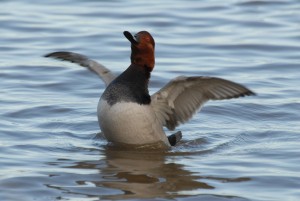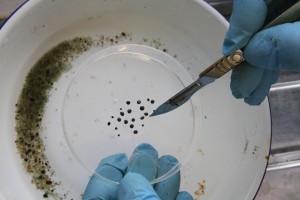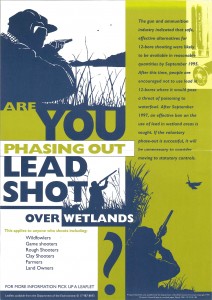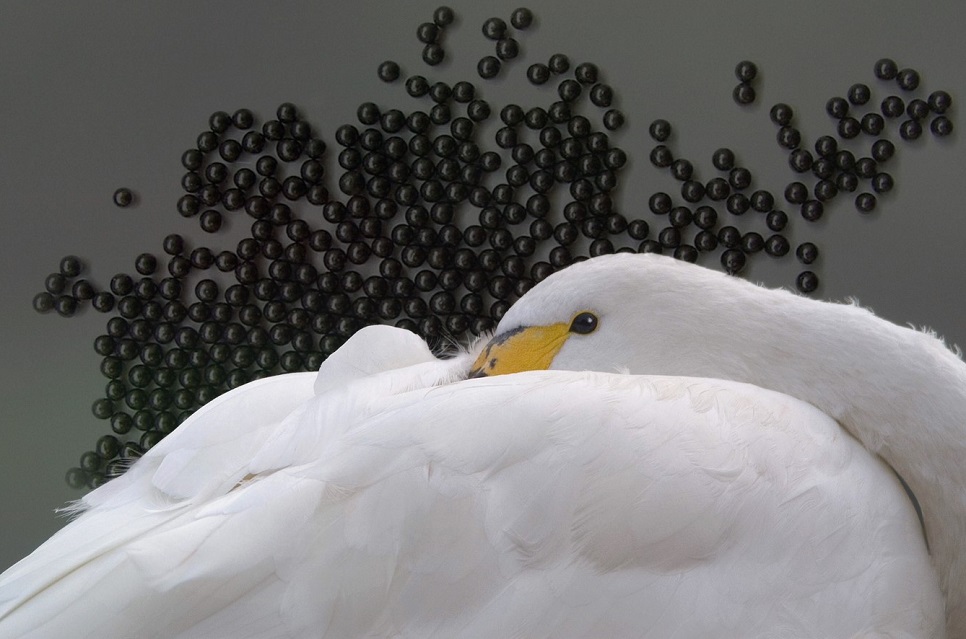WWT and lead ammunition poisoning

We commend colleagues at the British Association for Shooting & Conservation (BASC) for the excellent support they give to conservation work by organisations like WWT. Their staff are currently working with us on identifying the emerging disease sarcocystitis (rice breast disease) in wildfowl, and on research into gender ratios of the common pochard whose conservation status was recently uplisted to Vulnerable. Wildfowlers especially contribute key data to monitoring schemes.
But at a corporate level, since BASC appointed a new CEO in 2013, a number of insinuations have been made publicly about WWT’s work on lead ammunition poisoning, which we are pleased to clarify in the bullet points below.
WWT believes differing views should be treated with respect. We will not accuse anyone’s view of being biased or unsound, attempt to discredit them or divert debate away from the key issue – that lead ammunition pollution contaminates the environment, damages health and kills very many birds.

A quarter of all dead migratory swans we’ve autopsied died from lead poisoning. That says it all. We pick the ground-up pellets out of their gizzards, something most shooters never get to see even after decades of experience and knowledge in the field. Watch our video and see it for yourself.
It would be remiss of a charity called the Wildfowl & Wetlands Trust not to research this issue. We are led by where the evidence takes us, and it all tells the same broad story. We have tried to work with shooting organisations to encourage long-term behaviour change. But voluntary measures to reduce lead poisoning did not work in the 1990s and, after 15 years, the current partial restrictions do not cover terrestrial feeding, nor address compliance which is still demonstrated to be patchy despite thousands of law-abiding shooters signing a pledge to obey the law.

If the Government agrees the level of risk is high enough for action to be taken, we believe the most effective option left is tougher regulation to reduce unnecessary poisoning. Whatever the Government decides, we will continue to attempt to work with shooting organisations to address this issue in a way that benefits both people and wildlife.
In Denmark, hunters tell us that going lead shot-free 20 years ago supports the long term sustainability of shooting and enhances its reputation. In the UK, the game industry could benefit from frequent eaters of lead-shot game not being advised to reduce their consumption for health reasons. WWT wetland centres are at the heart of local rural communities and we believe we can all make this work for the long-term benefit of people and wildlife in the countryside. This is about reducing pollution, not about stopping anyone continuing to go about their legal business.
We are pleased to clarify:
- Regarding opinion stories in the press over several months questioning the integrity and intention of those involved in researching lead ammunition poisoning: we strongly defend the honesty of the dozens of staff and volunteers from rural communities, some of whom are BASC members too, who help to catch wildfowl for research purposes or submit samples for important research. WWT has a global reputation for expanding scientific knowledge in health and wetlands. We are experts in the issue of lead poisoning. Our research papers on the subject are peer reviewed and our methodology described in full, including any caveats which are fully explained.
- Regarding insinuation of duplicity regarding WWT’s participation in the Oxford Lead Symposium. Shooting organisations declined to participate. WWT and RSPB supported the Edward Grey Institute with the modest costs for the one day meeting. We are surprised that BASC is “shocked” and their CEO has “fears” that WWT provided administrative support, when the proceedings clearly state that was provided by two of our staff who are well known to BASC. The Oxford Lead Symposium website was registered in the UK, not the USA, and the registree’s name was rightly hidden (as is common practice) to personally protect them from the abuse by pro-lead campaigners that we receive at both personal and corporate level. The Edward Grey Institute convened and hosted the day, as well as contributing papers to, and publishing the symposium’s proceedings. WWT contributed to three of the eight papers presented, the others being presented by other experts, for example in the fields of shooting, ballistics and human health. This is all clearly stated in the proceedings.
- Regarding a suggestion that WWT is acting outside its charitable objects: BASC’s CEO has confirmed he is seeking a view from the Charity Commission regarding food safety issues, which makes this previously private matter a public matter subject to the Freedom of Information Act. The Charity Commission dismissed a similar enquiry from pro-lead campaigners in 2010. Human health is a key part of wetland disease management, and is one of the balancing factors in considering whether further regulation of lead ammunition is needed.

